Nội Dung Chính
- 1 Read the article. What is the problem Boyan Slat is trying to solve? What is his solution?
- 2 Circle the correct words to complete the Learn this! box. Use the examples in the box and the article to help you.
- 3 Find the phrasal verbs in the article. Are they separable or inseparable? How do you know?
- 4 DICTIONARY WORK Read the dictionary entries. Then answer the questions below.
- 5 VOCABULARY Match the phrasal verbs below with definitions 1-9. Is each phrasal verb separable or inseparable?
- 6 Complete each question using a phrasal verb from exercise 4 or 5. Complete the follow-up question with the same phrasal verb and the correct pronoun.
- 7 SPEAKING Work in pairs. Ask and answer the questions and follow-up questions from exercise 6.
(Page 76)
I can use separable and inseparable phrasal verbs correctly.

1 Read the article. What is the problem Boyan Slat is trying to solve? What is his solution?
There are very few people who come up with a world-changing idea during their lifetime - but to come up with it while you are still a student is even more unusual. But that is exactly what Dutch teenager Boyan Slat has done. Environmental Impact magazine interviewed him.
EIM What is the problem that you identified?
BS Every year, millions of tonnes of plastic end up in the oceans, where the waves break it up into tiny pieces. This pollution kills millions of sea creatures every year.
EIM Hasn't there been any action to stop it?
BS Very little, even though campaigners have been calling for it for years.
EIM And you've worked out a way to tackle the problem.
BS Yes. My invention would float on the surface of the ocean and gradually clean it up by collecting around 20 billion tonnes of plastic from the water.
EIM What would you do with all that plastic?
BS Rather than throwing this away, it could be recycled and sold for about $500 million a year.
EIM And how would your floating invention be powered?
BS It would take energy from the waves and sun, so it would never run out of it!
2 Circle the correct words to complete the Learn this! box. Use the examples in the box and the article to help you.
LEARN THIS! Separable and inseparable phrasal verbs
a Two-part phrasal verbs can be separable or inseparable.
With separable phrasal verbs, the object can come before or after the particle (for, up, with, etc.).
We must work out the answer.
OR We must work the answer out.
b When the object is a pronoun (her, it, them, etc.) it can only come 1after/before the particle.
We must work it out.
c With inseparable phrasal verbs, the object always comes 2 after/before the particle, even when it is a pronoun.
She looks after her dad. She looks after him.
d Three-part phrasal verbs are always 3separable /inseparable.
We won't run out of energy. We won't run out of it.
3 Find the phrasal verbs in the article. Are they separable or inseparable? How do you know?
4 DICTIONARY WORK Read the dictionary entries. Then answer the questions below.
PHR V look after sb/sth/yourself to be responsible for or take care of sb/sth/yourself: I'll go back to work if I can find somebody to look after the children.. The old lady's son looked after all her financial affairs.
look down on sb/sth to think that you are better than sb/sth
look sth up to search for information in a book: to look up a word in a dictionary
look up to sb to respect and admire sb
1 Which phrasal verbs are two-part and which are three-part?
2 Which two-part phrasal verb is separable and which is inseparable? How do you know?
5 VOCABULARY Match the phrasal verbs below with definitions 1-9. Is each phrasal verb separable or inseparable?
Separable and inseparable phrasal verbs
ask sb out
bring sth up call sth off come across sth
count on sb
give sth up
hold sb up
take after sb
turn into sth
1 stop doing something give sth up (separable)
2 mention something
3 be similar to somebody (a parent or older relative)
4 rely on somebody
5 delay somebody
6 invite somebody to go on a date (e.g. to the cinema)
7 find something accidentally
8 become something else
9 cancel something
6 Complete each question using a phrasal verb from exercise 4 or 5. Complete the follow-up question with the same phrasal verb and the correct pronoun.
1 Which person from history do you __________to?
Why do you __________ ?
Which person from history do you look up to ? Why do ...
2 Which food or habit would you like to __________?
Why do you want to __________ ?
3 If you could __________ a famous person, who would you choose?
Why would you want to __________?
4 Have you ever __________ some money in the street?
If so, what did you do when you __________ ?
5 Which member of your family do you __________?
In what way do you __________ ?
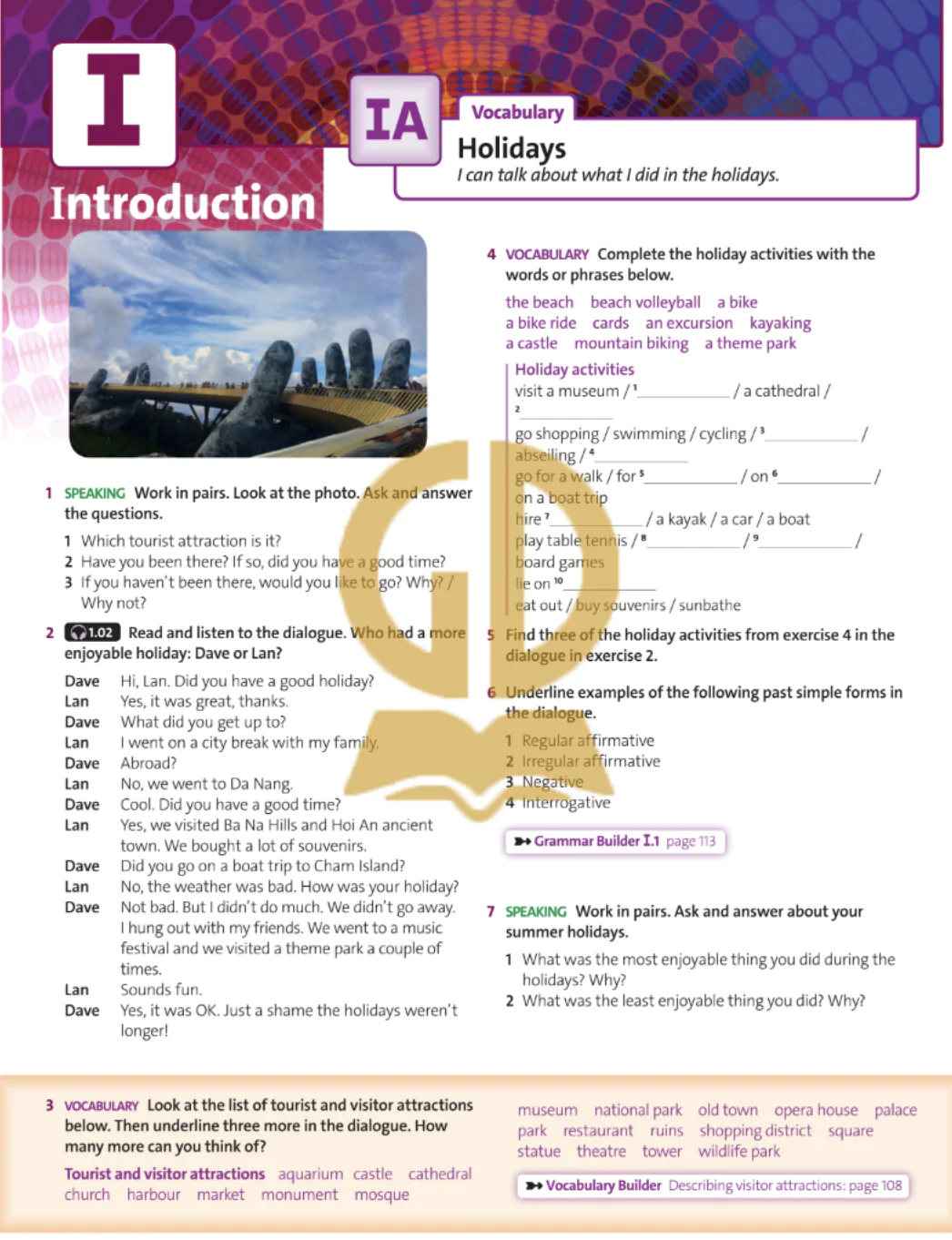
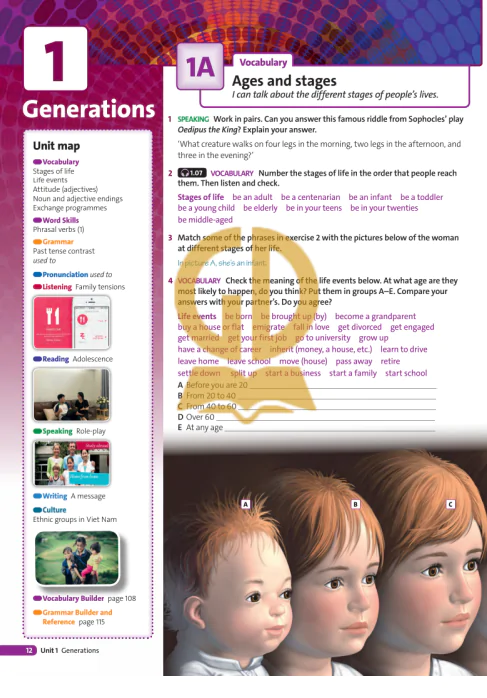
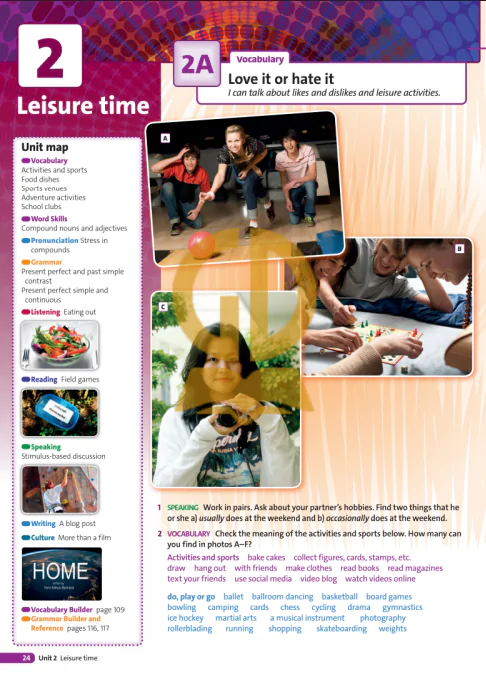
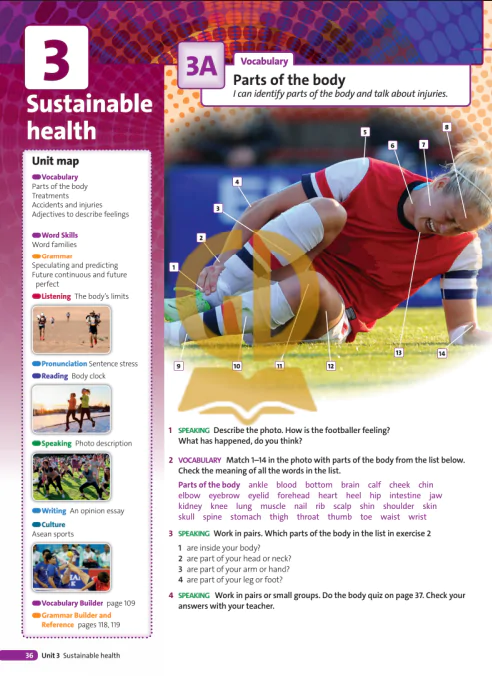




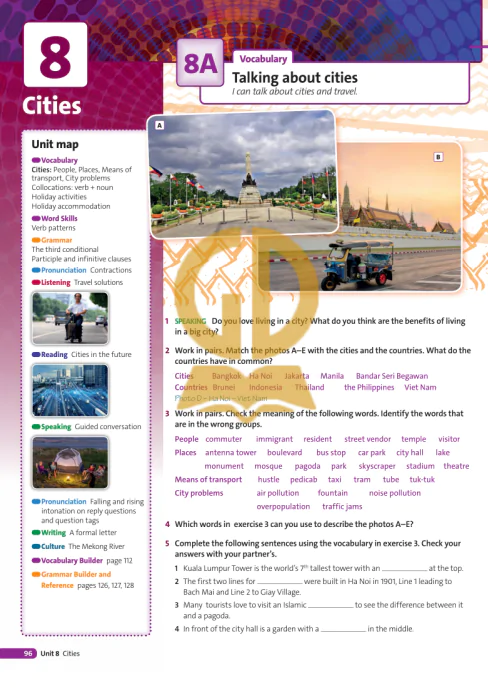



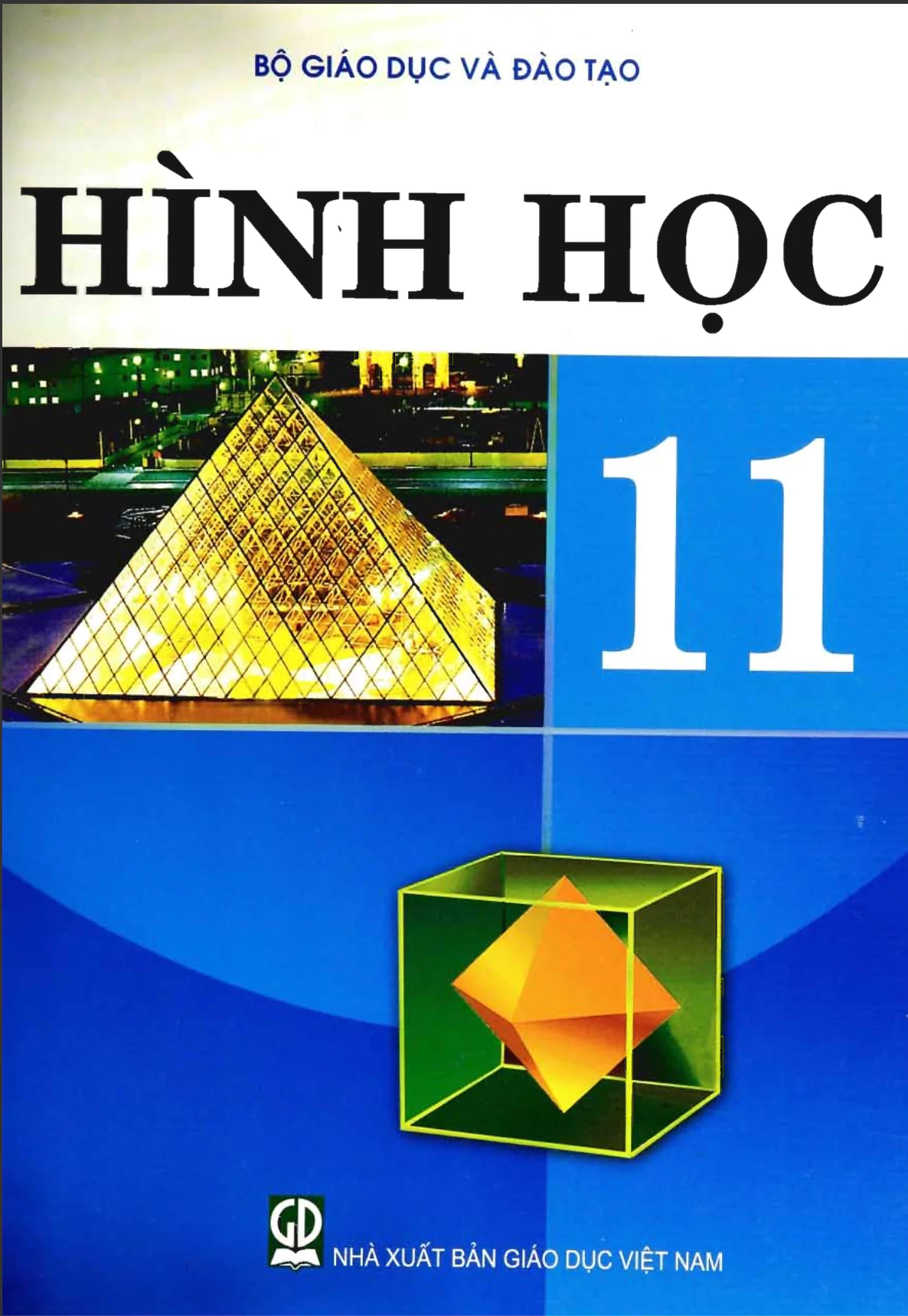

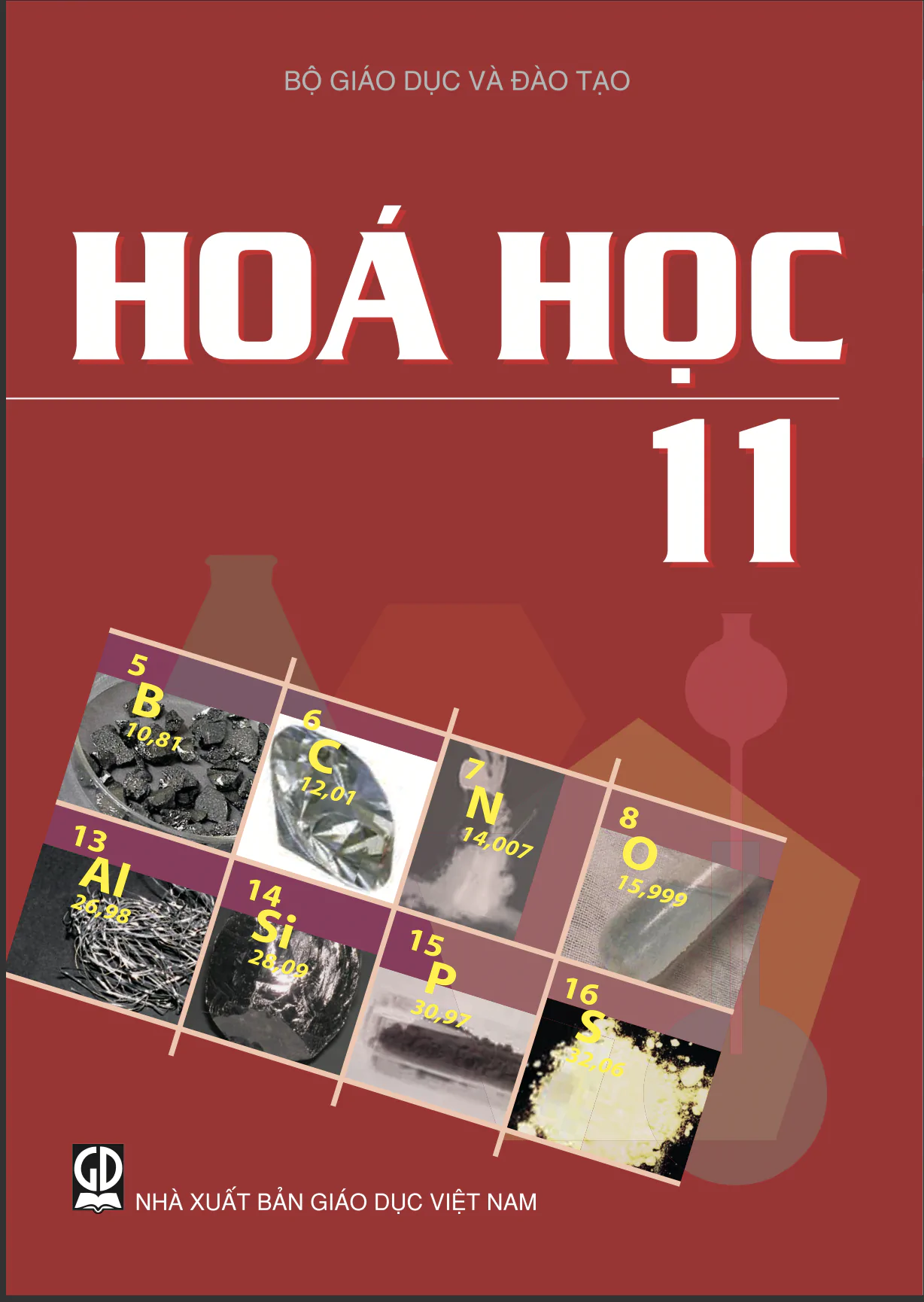



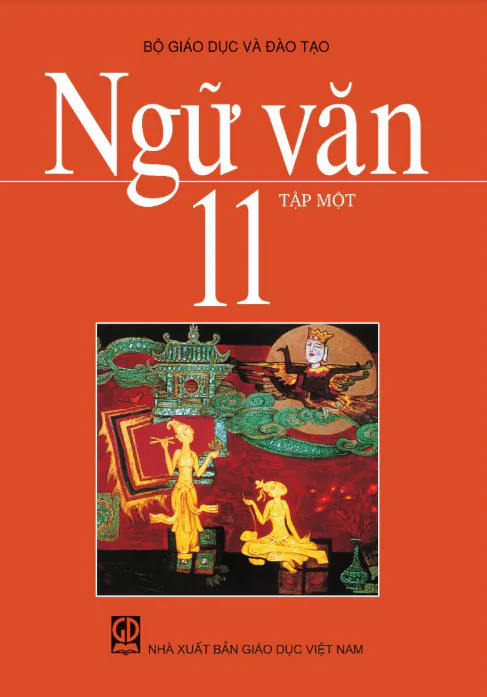









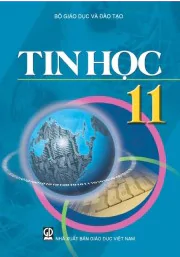



















Bình Luận
Để Lại Bình Luận Của Bạn